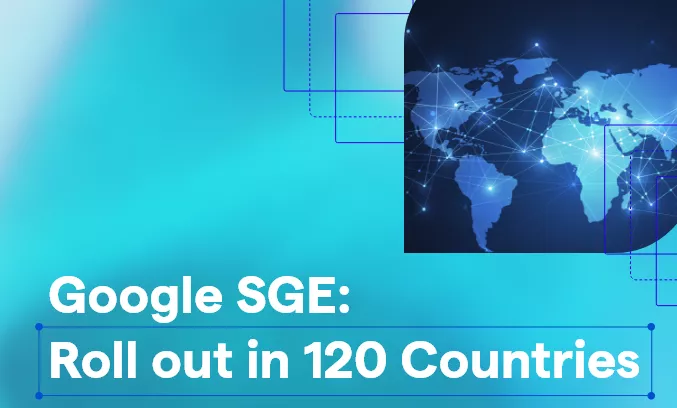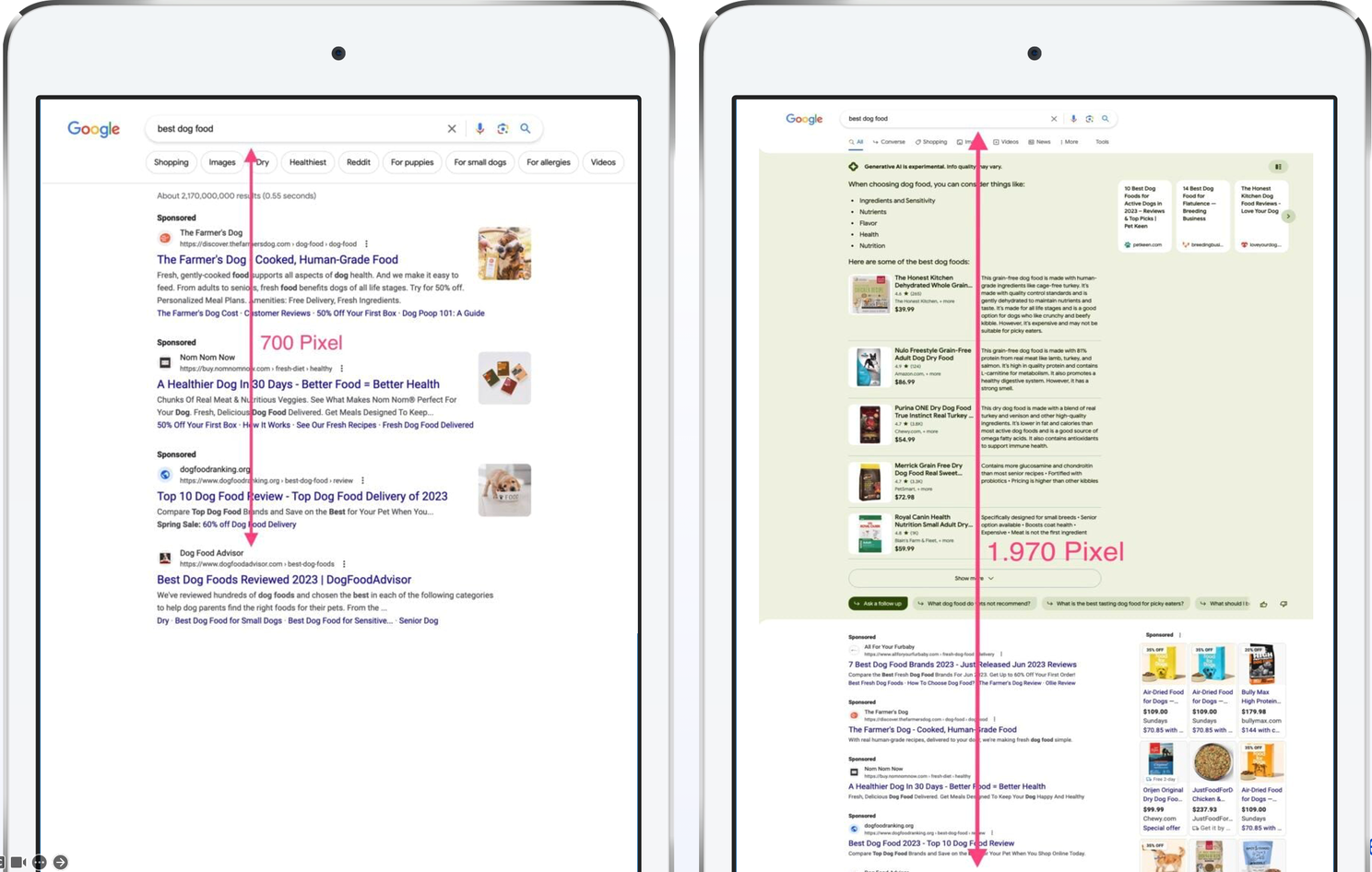Blog
AI-powered Google Search Rolled Out in 120 Countries: Text Automation Crucial to Future SEO

Daniel Niedermayer
Since its foundation, Google has been striving to become not just a search engine, but an answer engine. With the introduction of AI Overviews (former SGE or Search Generative Experience), which is based on innovative, generative AI features, a new and exciting chapter begins in this overall plan. This new search plays a key role in realising this vision

Since 8 November, the new search functionality has been rolled out in 120 countries. Countries such as Mexico, Brazil, South Korea, Indonesia, Nigeria, Kenya, and South Africa, among others, will benefit from the new AI search. However, the UK, Switzerland, and the entire EU region, including Germany and Austria, will be excluded for the time being. It seems likely that one or more of the following explanations lie behind the delayed rollout:
- Concerns about GDPR compliance
- Regulatory uncertainties concerning AI
- Lack of demand for experimental functionalities
It should also be mentioned that the new AI search is currently NOT available to all users, but is activatable via Search Labs. Interested parties must therefore apply for activation. Access is through Chrome Desktop or the App.
New Opportunities through Follow-up Questions
SEO expert Barry Schwartz has given his initial assessment of the new possibilities on Search Engine Land. Particularly exciting are the follow-up questions:
The way users interact on search pages could completely reorganise, with direct implications for eCommerce. Thanks to the implementation of follow-up questions, users can stay directly on the search results page (SERP) and explore products or topics without leaving the search. This happens by displaying the original search query, which triggers further, related questions and thus picks up on the individual purchasing intent of the users.
This approach poses a challenge for eCommerce operators: Instead of jumping from shop to shop or to the product overview page, users can receive information seamlessly and find the right product without leaving the search page. The result will be fewer touchpoints with customers, which only occur on the product detail pages (PDP). It is the responsibility of eCommerce operators to provide attractive and convincing content that converts and retains users.
The company is currently still in a learning phase, experimenting in more and more countries on how to successfully integrate its business model. This includes the challenge of keeping the costs within limits, as AI-based search queries are about ten times more expensive than regular search queries.
Despite this, both publishers and eCommerce companies must grapple with this issue. For in the future there may only be one touchpoint with potential customers: after having taken a good look at a product or product category, they may only jump to the product detail page and make the decision there whether they want to purchase the product or not. Therefore, everything must be perfect there, from the product itself to the display and the content. Businesses therefore need a strategy to remain successful in this changing search engine landscape and to secure their SEO rankings.
How Search Is Changing
Nobody can predict exactly how the new SEO will be designed in the global search. What is clear, however, is that historical rankings are being pushed out of the directly visible area, indicating significant losses in revenue.

Historically top placements in organic search are moving into the non-visible area of the SERP.
At the same time, it is uncertain what measures will have to be taken to be placed in the search box. However, one thing is certain – without high-quality content that meets search intentions and answers users’ most important questions, it will not work. Marketing, content, and SEO teams that ignore these new circumstances and do not revise their content can expect severe losses in SEO ranking and visibility.
Our content automation platform, textengine.io, offers the ability to quickly adjust and edit product detail pages in 100,000-execution with just two clicks based on the latest findings.
If you have any questions or need more information, we are happy to help. Contact us – our experts will be happy to get back to you!